- Coast-sea interactions
- Sustainability, environmental quality and human well-being
- Methodology for interdisciplinary research
- Research seminar I
- Research seminar II
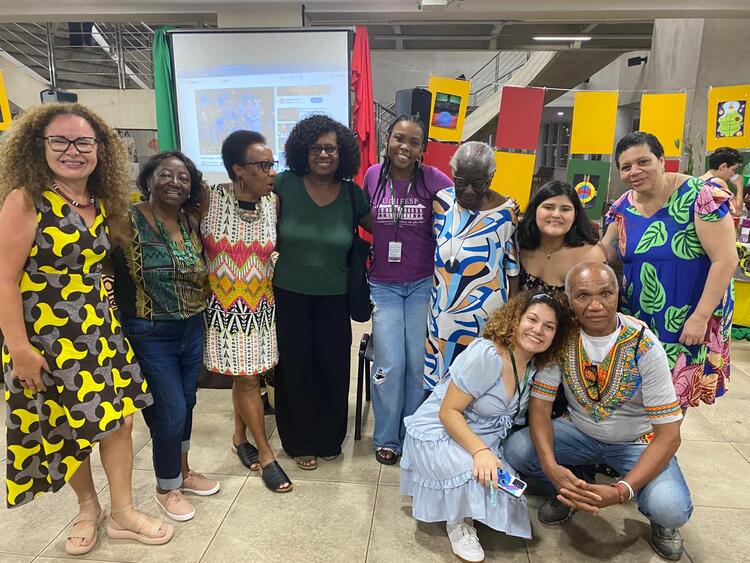
A Universidade Federal de São Paulo (Unifesp) e a Secretaria de Saúde da Prefeitura de Santos promovem nos dias 18 e 19 de novembro um evento sobre prematuridade. O objetivo é abordar questões importantes relacionadas ao cuidado com bebês prematuros, reunindo especialistas, profissionais da área da saúde e estudantes.
Leia mais...O tabagismo continua sendo um dos maiores desafios de saúde pública no Brasil e no mundo, estando diretamente associado a diversas doenças crônicas e mortes evitáveis. Com o objetivo de contribuir para a redução desse grave problema, a Universidade Federal de São Paulo (Unifesp), campus Baixada Santista, lançou o projeto de extensão "Pare de Fumar: Apoio para uma Vida Sem o Tabaco".
Leia mais...Um novo estudo da Dra. Leandra R. Gonçalves, professora do Instituto do Mar da Universidade Federal de São Paulo (Unifesp), explora o papel do Brasil em duas organizações internacionais de gestão pesqueira: a Comissão Internacional para a Conservação dos Atuns do Atlântico (ICCAT) e a Comissão para a Conservação dos Recursos Marinhos Vivos da Antártida (CCAMLR). O artigo revela como a falta de dados precisos e a instabilidade da governança interna do Brasil impactam suas políticas pesqueiras internacionais, destacando desafios e oportunidades para a sustentabilidade.
Leia mais...O Presidente Lula, o vice-presidente Geraldo Alckmin, a Ministra de Ciência, Tecnologia e Inovação (MCTI) Luciana Santos e outras autoridades e parlamentares visitaram o estande de oceano do MCTI na 21a Semana Nacional da Ciência e Tecnologia (SNCT) que foi organizado pela Coordenação-Geral de Oceano e Antártica do MCTI em parceria com o Programa Maré de Ciência/UNIFESP.
Leia mais...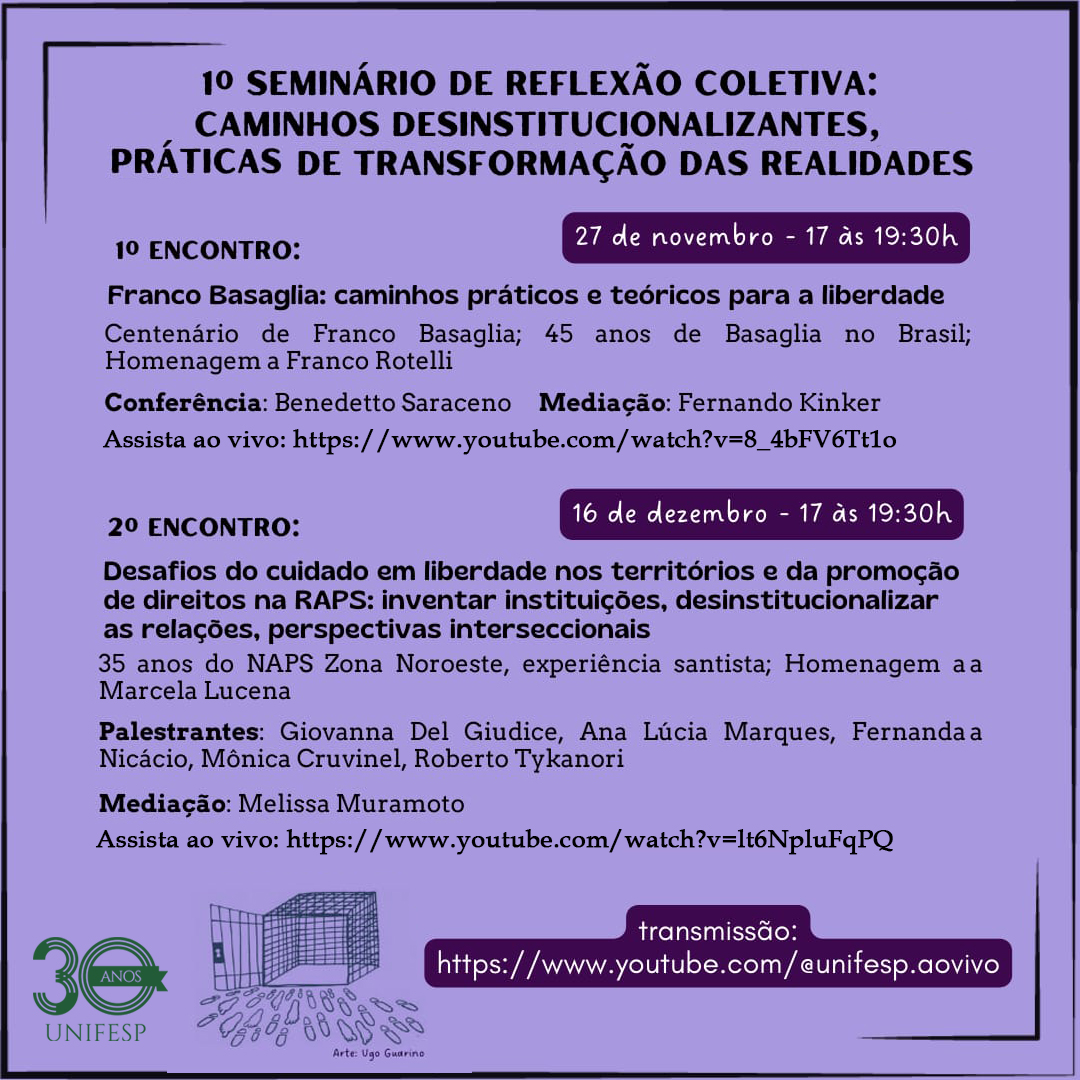
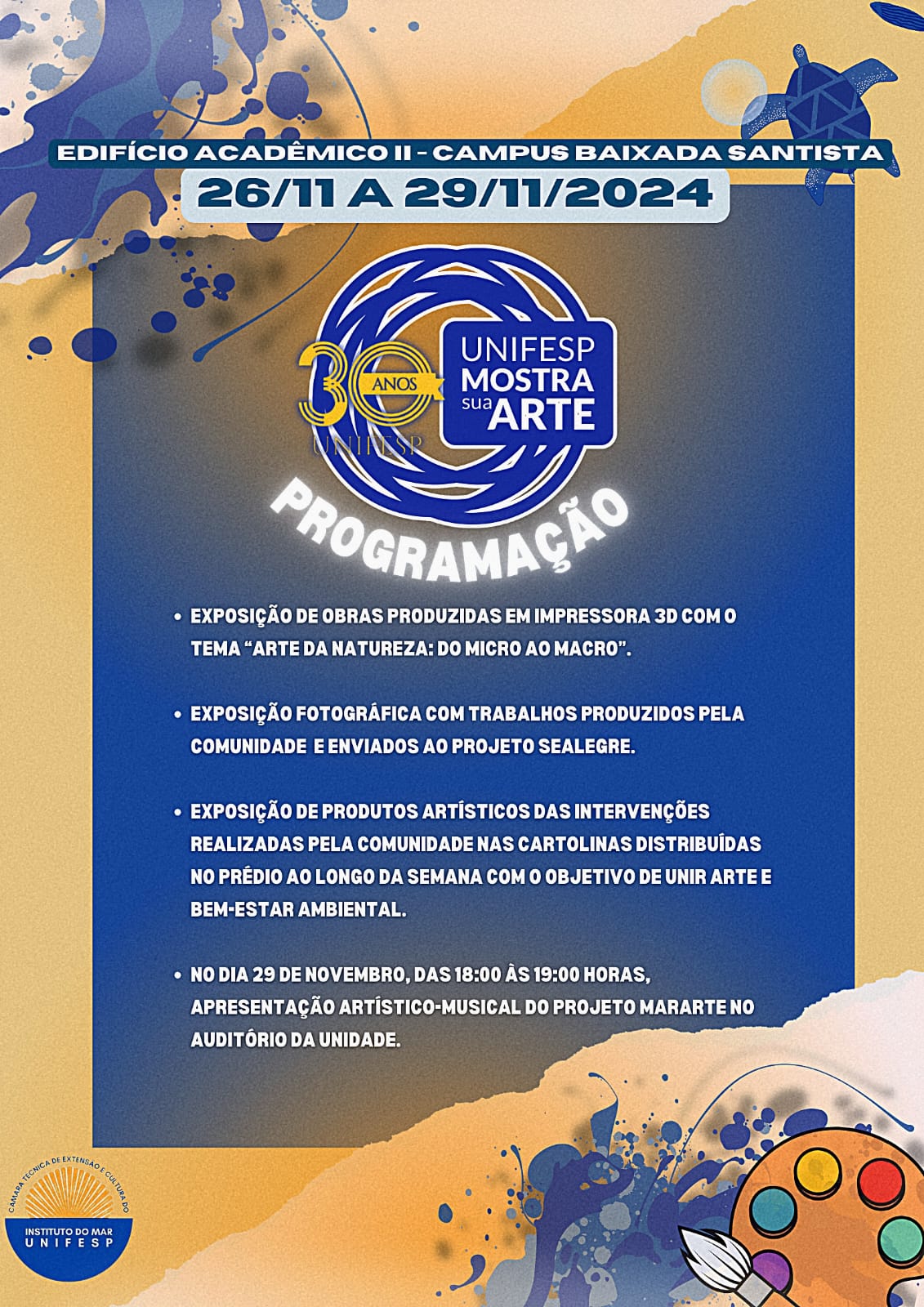
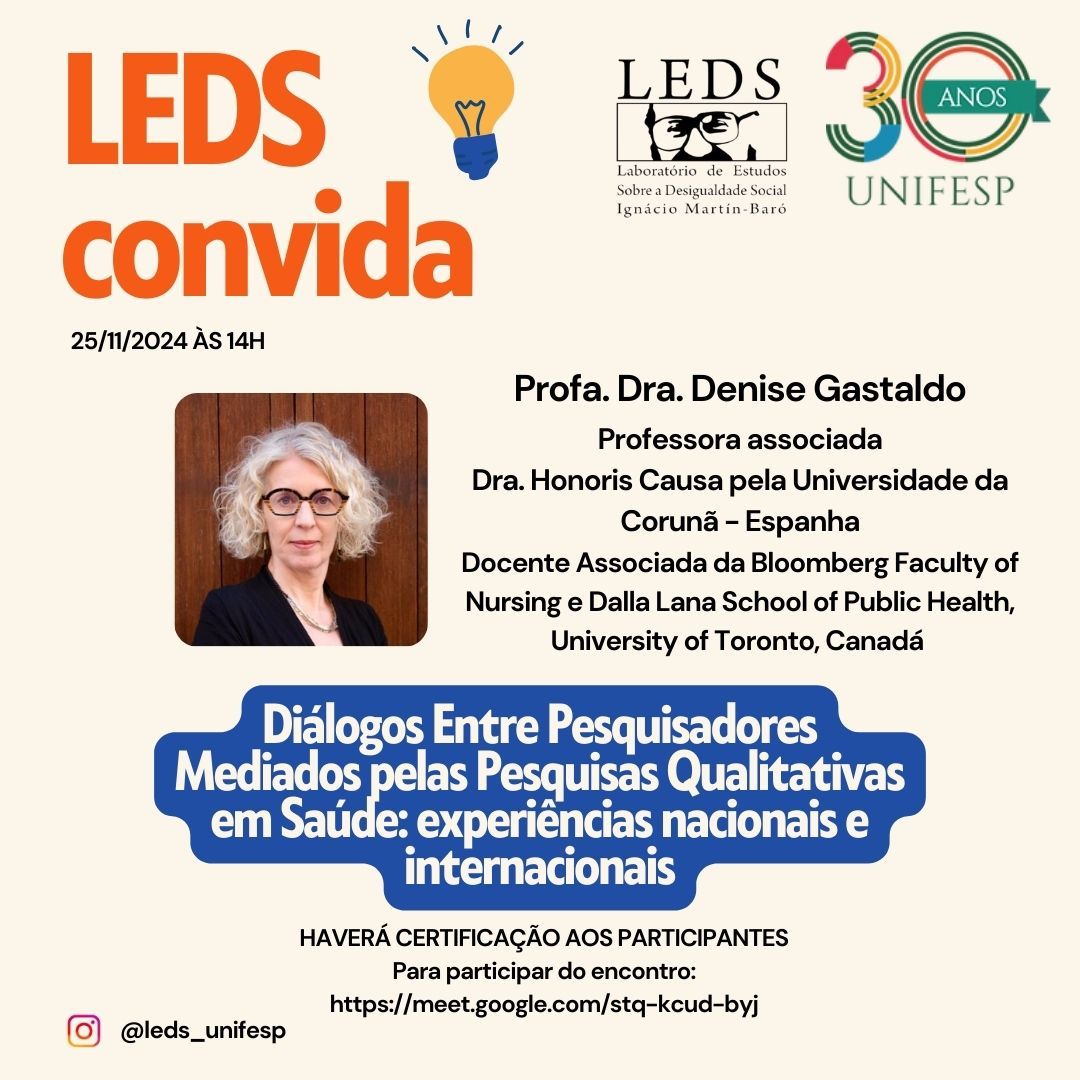
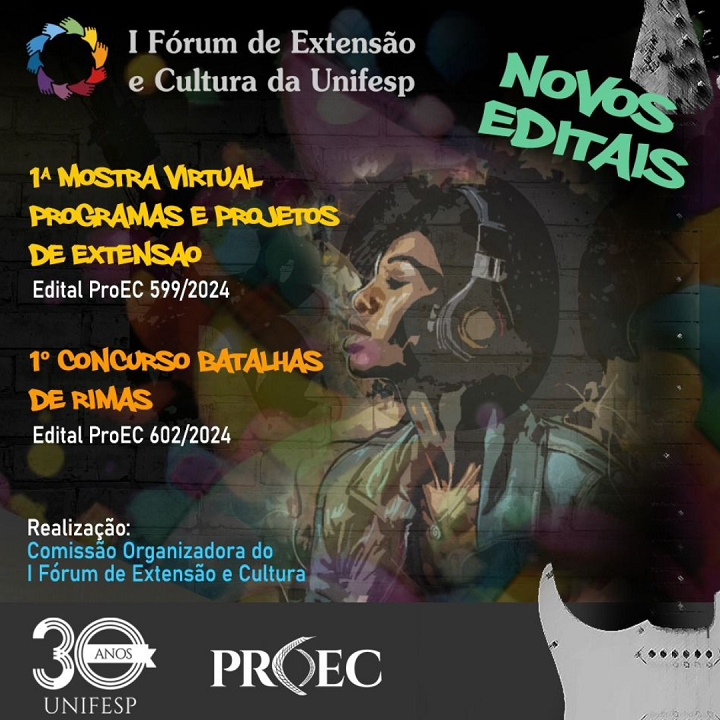
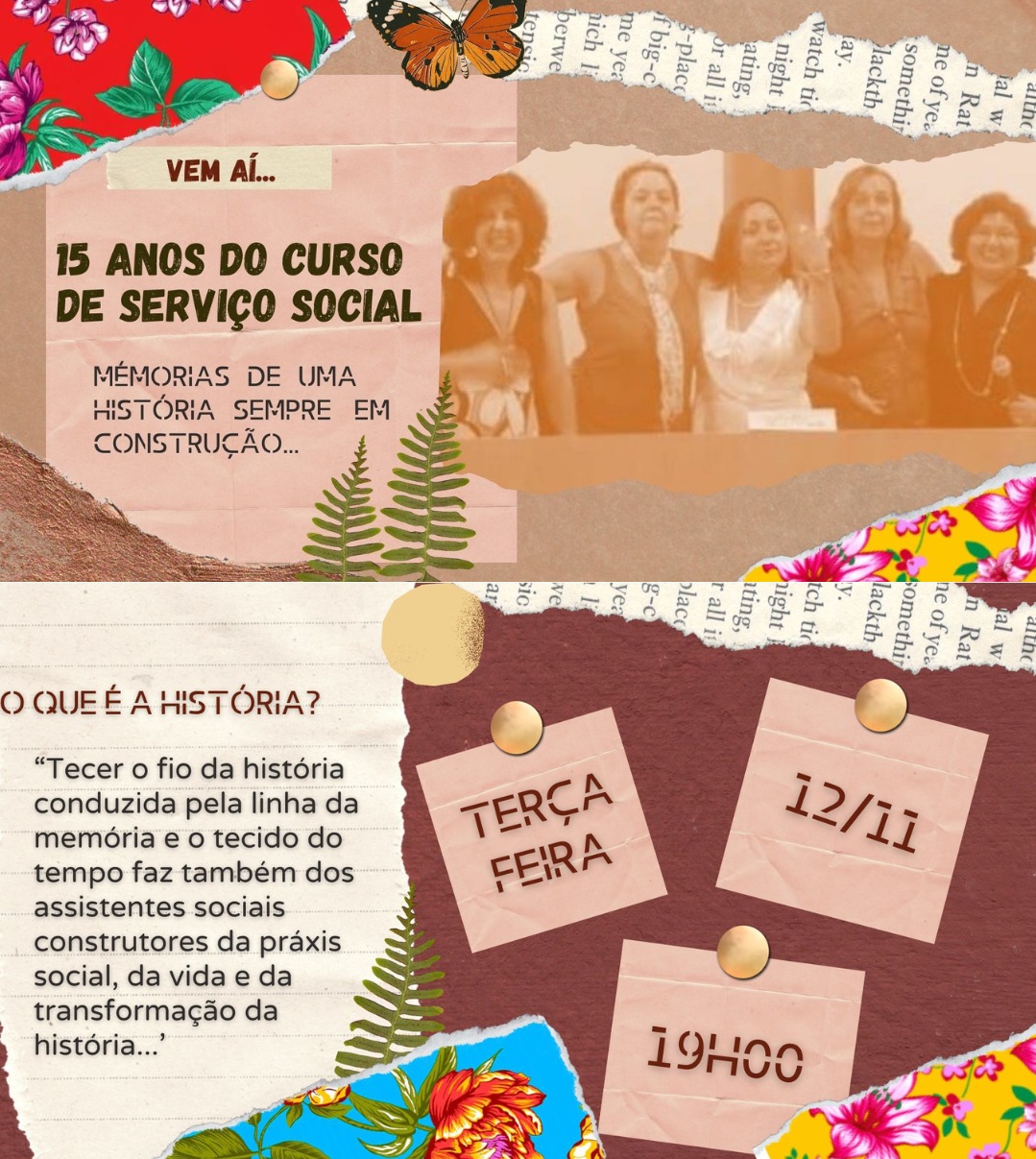
Informamos que serão realizados os serviços de DEDETIZAÇÃO e DESRATIZAÇÃO nas unidades da Unifesp - Campus Baixada Santista, conforme datas no cronograma abaixo.
Leia mais...É com grande satisfação que convidamos toda a Comunidade da Unifesp, docentes, discentes e taes da Unifesp, a participarem do 2º Encontro do Fórum Permanente de Discussão do Projeto Político Pedagógico (PPP), que será realizado no próximo dia 25 de novembro de 2024, das 14h às 17h, no saguão central do edifício Mariângela Duarte (Rua Silva Jardim, nº 136, Santos).
Leia mais...A Comissão Eleitoral responsável pelas Eleições de Representação Discente (mandato 2025) e vagas remanescentes da Representação Docente e Técnico-administrativo em Educação (mandato 2025) nos Conselhos Centrais e demais Órgãos Colegiados informa que foram suspensas na noite de ontem (11/11/2024) as votações da categoria estudante, em virtude de um erro humano na configuração das urnas.
Leia mais...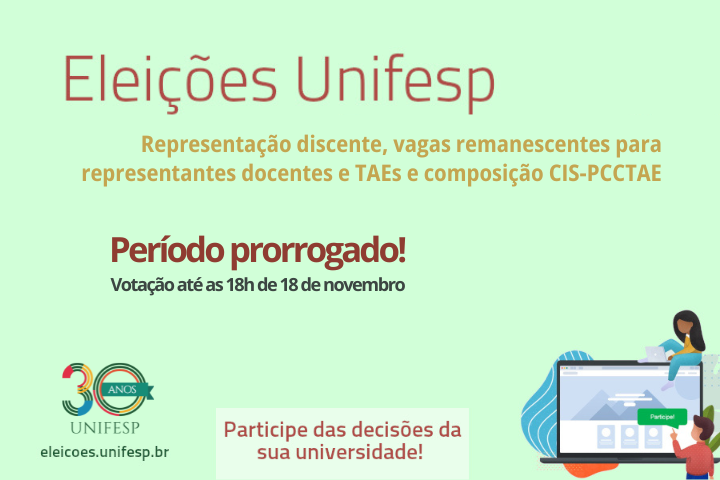
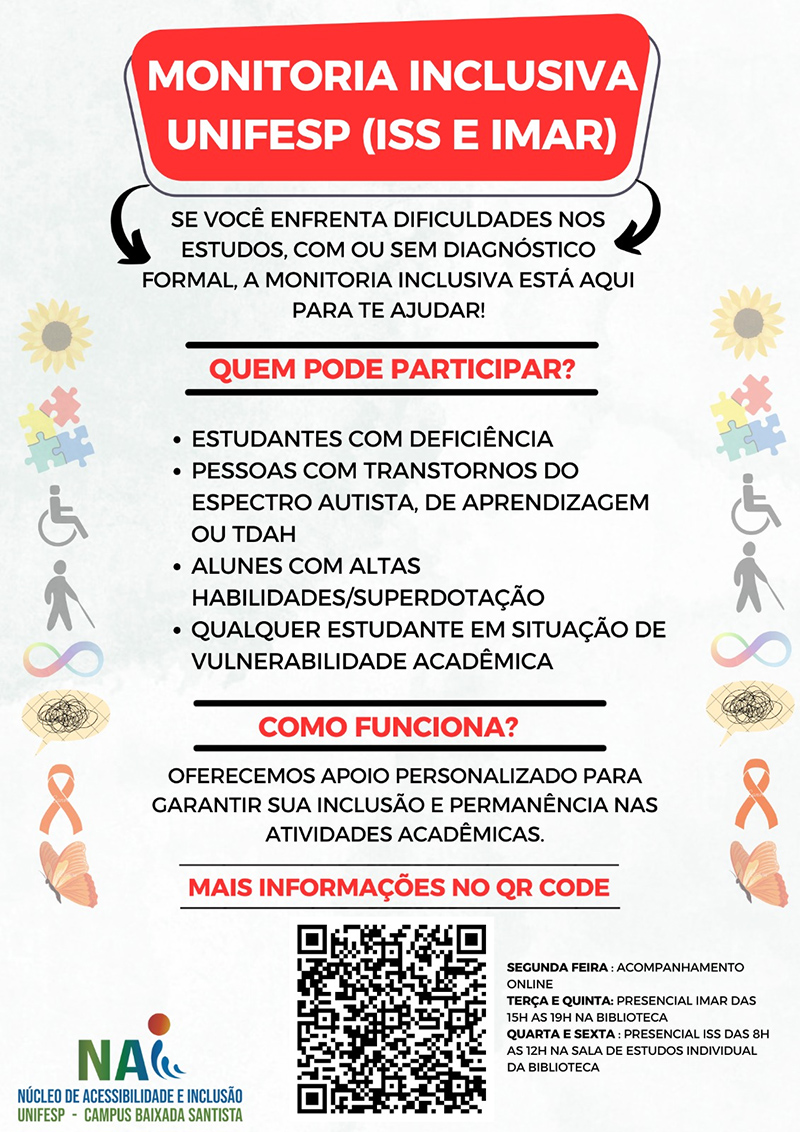
Camilo Dias Seabra Pereira
Elen Aquino Perpetuo
Emmanuelle Sá Freitas Feitosa
Fernando Fernandes Mendonca
Fernando Ramos Martins
Flavia Talarico Saia
Gustavo Fernandes Camargo Fonseca
Jose Alberto Carvalho Dos Santos Claro
Juan Carlos Ramirez Mittani
Lucio Leonel Barbosa
Magno José Alves
Nancy Ramacciotti de Oliveira Monteiro
Nilo Francisco Cano Mamani
Pilar Carolina Villar Laine
Renzo Romano Taddei
Ronaldo Adriano Christofoletti
Sylvia Helena Souza da Silva Batista
Tatiana Martelli Mazzo
Yvan Jesus Olortiga Asencios
Interactions Human-Technology-Environment in coastal and marine systems Coastal and marine regions are environments with particular environmental and social aspects that interact through complex processes involving the five Earth System dimensions: Anthroposphere, Atmosphere, Biosphere, Hydrosphere, and Lithosphere.
These regions harbor ecosystems rich in biodiversity and provide different environmental services. On the other side, the coastal and marine areas also experience high pressure due to human activities linked to port trading, industrial facilities, and urban expansion, in addition to the presence of several traditional populations. The domain of knowledge area of PPG-ICTMAR integrates three complementary research lines based on an interdisciplinary approach to the Marine Sciences. All of them aim at expanding the frontiers of knowledge, promoting technological development and innovative methodologies, taking into account the natural and anthropic processes in coastal and marine environments.
RESEARCH LINES
1) Environmental monitoring and diagnosis in coastal and marine regions
The relationship between the environment and human beings (at the individual, populational, and societal levels) is the result of a complex mixture of negative (e.g., urbanization, pollution, and contamination) and positive factors (e.g., the well-being of people, coastal life, marine resources, energy sources). The interaction between such factors needs to be qualified and quantified, reported, and weighted in all dimensions. Thus, the investigation and monitoring of these complex interactions require interdisciplinary approaches that recognize the human being as a member of the coastal and marine ecosystems, in contrast to the idea that humans are an external agent of disturbance that destabilizes ecological systems.
Understanding the perspective for maintaining the stability of the ecosystems and human well-being is one of the most significant challenges of this research line. Efforts will be employed to produce interdisciplinary research focused at understanding the interactions between humans and the environment. This research line also embraces investigation work to support the technological development for data acquisition, environmental analysis, and resource management of coastal and marine environments.
The expected results should promote and support sustainable socio-environmental management in the coastal and marine areas as a broad governance process that considers both the diversity of public and private actors regarding the ecological dynamics and different socioeconomic activities of use of the territory. The research efforts should articulate with the other two research lines, either by supporting the development of public and private policies and strategies for the prevention and recovery of coastal and marine environments (Research line 2) or by the critical tools for the development of strategies and technologies for the sustainable use of cosystem resources and services in coastal and marine environments (Research line 3).
2) Strategies for risk prevention and recovering of coastal and marine environments
Coastal and marine regions are highly vulnerable to environmental and socioeconomic impacts generated by critical events (as in the case of environmental disasters) and anthropic processes (such as the release and waste disposal without treatment) that alter biogeochemical cycles and the energy balance of the marine and coastal system. Such changes directly impact human health, lead to a reduction in biodiversity, and are related to global changes on a regional and global scale.
The PPG-ICTMAR considers it is essential to propose strategies to prevent, mitigate, adapt, or recover the environmental quality and human well-being considering the economic activities occurring in coastal and marine regions. Also, estimating their associated costs is a fundamental need in the creation and implementation of public policies for the environment.
Innovation is a fundamental driving force to promote such strategies for coastal and marine environments since several strategies will depend on new technologies that are or not yet fully developed and tested, and must be modeled in terms of energy, exergy and mass balances. The analysis of possible barriers to implementing the new technologies and the learning curves are crucial. This research line encompasses interdisciplinary studies aimed at developing theories, practices, and technologies applied to the emission control of pollutants, the minimum generation of waste, and maximum efficiency of energy usage.
3) Sustainable exploitation of ecosystem resources and services in coastal and marine environments
Demands of anthropic origin must be met considering the fair distribution of ecosystem goods and services, as well as the biophysical dynamics of the environment. The sustainability of human activities in the oceans and coastal regions depends on maintaining the integrity and health of marine ecosystems.
The PPG-ICTMAR assumes that knowledge production, technology development, and capacity building to prepare researchers and professionals to understand the interdependence between the use and conservation of the Sea and its resources is an essential activity to promote sustainability in coastal and marine regions. The conscious and effective use of natural resources requires synergistic efforts by public and private agents. The sustainable exploitation of ecosystem resources and services provided by the oceans is a research topic and technological development at several academic institutions with a steady partnership from management organizations, national and international agencies, and government decision-makers.
This research line is aligned with the objectives of the Brazilian Sectorial Plan for the Sea Resources (PSRM), and it aims at producing solid knowledge and innovative strategies and technologies to support the sustainable exploitation of mineral resources, biodiversity and ecosystem services in coastal and marine environments. In this sense, this research line is complementary to the former research lines, since the diagnosis, monitoring, impact prevention, and recovery of ecosystems are intrinsically related to the sustainable use of resources.
Overview
The Graduate Interdisciplinary Program in Marine Science and Technology (PPG-ICTMar is the acronym in Portuguese) is an innovative proposal for training researchers and professionals interested in working on integrative, innovative, and transformative knowledge and technologies for sustainable development in coastal and marine areas. Coastal and marine systems are, by nature, interdisciplinary and include several topics related to the five key dimensions in Earth Science: Atmosphere, Biosphere, Lithosphere, Hydrosphere, and Anthroposphere, as shown in the figure below.
The PPG-ICTMAR aims at fostering scientific progress to promote the social integration of the academic community, and to support the transformation of society. In this way, it is intended that the impact of the products generated by academic research surpasses the university spaces, promoting the educational, cultural, social, economic, and environmental development of coastal areas.
The PPG-ICTMAR is organized according to three complementary research lines focusing on the interdisciplinary view of the Marine Sciences. Our main goals are the expansion of the frontiers of knowledge and the promotion of the development of technologies and innovations focused at natural and man-made processes in coastal and marine environments.
The first research line, called "Environmental monitoring and diagnosis in coastal and marine regions," deals with the data acquisition and evaluation of coastal and marine environments. The second research line, “Strategies for risks preventing and recovering in the coastal and marine environment,” includes projects concerning the development of strategies for the prevention of environmental impacts and the recovering of coastal and marine systems. Finally, the third research line, "Sustainable exploitation of the ecosystem resources and services in coastal and marine environments,” focuses on the development and implementation of technological strategies to manage the ecosystem resources and services in coastal and marine environments.